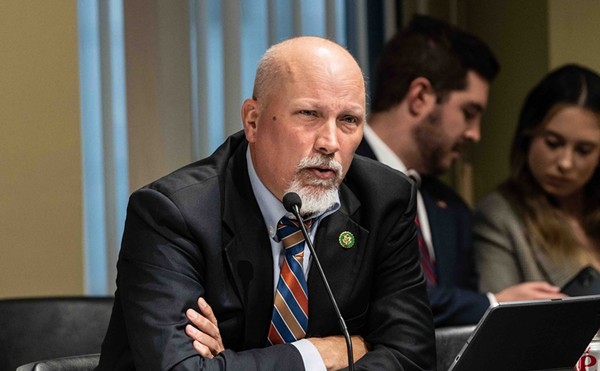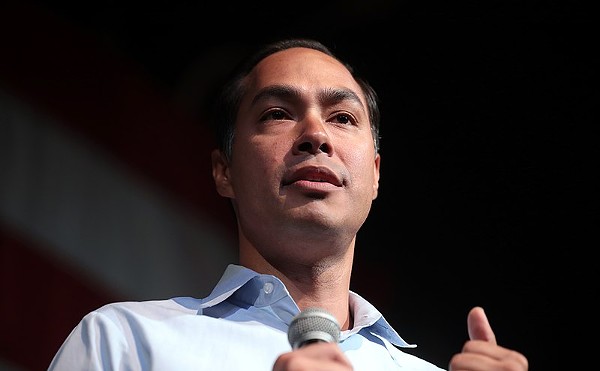
The name of the city’s long-running pride gathering is a reference to Texas’ rep for doing things larger than life. Unfortunately, that same approach applies to the Republican-controlled Texas Legislature’s continued war on the LGBTQ+ community.
In 2023 alone, Lone Star State lawmakers introduced 55 anti-LGBTQ+ bills, six of which were signed into law by Gov. Greg Abbott, according to a tally by the ACLU. Indeed, Texas ranks No. 38 in this year’s Out Leadership equality report, which helps companies weigh the risks of opening offices in states that may be unfriendly to LGBTQ+ workers.
The spate of new laws seeking to punish queer Texans includes cracking down on drag shows, banning gender-affirming care, barring transgender athletes from competing in sports and requiring public universities to eliminate diversity, equity, and inclusion (DEI) policies.
Fortunately, many of those laws are now under court challenge. Here’s a rundown on where some of those stand.
Senate Bill 12: Drag performance ban
Last June, Abbott signed four anti-LGBTQ+ bills into law, including Senate Bill 12.
Initially, SB 12 aimed at preventing those under 18 from watching drag performances by defining all drag shows as sexual, as reported by the Texas Tribune. However, lawmakers significantly altered that language during the legislative process.
The law, which went into effect in September, states that business owners caught hosting sexually explicit performances or that appeal to the “prurient interest in sex” can be fined up to $10,000.
The vague language in the bill’s final draft led to civil rights groups including the ACLU of Texas to file a federal lawsuit arguing that the legislation violates people’s right to free speech and due process.
In September, U.S. District Court Judge David Hittner declared SB 12 unconstitutional and blocked Texas Attorney General Ken Paxton from enforcing it.
Paxton appealed to the notoriously conservative Fifth Circuit Court of Appeals, motioning for a stay on the lower court’s ruling.
The New Orleans-based court ruled that Hittner’s stay would carry with the case, meaning that drag performers are free to do their thing in Texas — at least while the case continues to wind its way through the courts.
Senate Bill 14: Gender-affirming care ban
On June 2, 2023, Abbott signed Senate Bill 14 into law, joining 17 other states in banning minors from accessing puberty blockers and hormone therapy. The measure also barred Texas healthcare providers from conducting gender reassignment surgery to minors — an extreme rarity even before passage of the law — at the risk of losing their medical license.
That law was supposed to go into effect in September. However, a group consisting of five Texas families, three medical professionals and two civil rights organizations sued the state, arguing that SB 14 is unconstitutional.
Travis County District Court Judge Maria Cantu Hexsel agreed and blocked the legislation from going into effect. However, Paxton appealed that decision to the Texas Supreme Court.
The all-Republican Texas Supreme Court denied the plaintiffs’ request for emergency relief while awaiting oral arguments, which allowed the law to take effect in as planned. In January, the court began hearing arguments about SB 14, and it’s yet to render a ruling.
Even so, the Biden Administration issued rules in March stating that federally funded Medicaid programs must pay for some gender care procedures, citing a provision in the 2016 Affordable Care Act.
However, Paxton last week sued the White House over that issue, asking a federal court for injunctive relief, which would temporarily prevent that provision from taking effect.
Senate Bill 15: ‘Save Women’s Sports Act’
In August, Abbott signed Senate Bill 15, which requires collegiate athletes at public colleges and universities in Texas to compete on teams and competitions that align with their sex at birth.
Known as the “Save Women’s Sports Act,” the law went into effect in September and comes two years after Texas banned student athletes in K-12 schools from competing on teams that align with their gender identity.
Despite ACLU Texas’ description of SB 15 as “unfair, unconstitutional, and just plain cruel,” neither it nor any other civil rights or advocacy group has sued to overturn the legislation.
Texas is one of 24 states with laws banning transgender athletes from competing on teams that align with their gender identity, according to the LGBTQ+ advocacy group Movement Advancement Project.
However, in response to the growing number of anti-trans athlete laws, the Biden Administration last year expanded Title IX, the sweeping anti-discrimination civil rights law passed in 1972, to include explicit gender identity and sexual orientation protections.
Paxton sued the Biden administration over those changes in April.
Senate Bill 17: Anti-DEI legislation
Senate Bill 17, which requires Texas’ state-run universities to close their diversity, equity, and inclusion (DEI) offices, went into effect in January. The effects have been striking.
By April, more than 100 jobs at state-funded universities across Texas had vanished, according to multiple media reports. The University of Texas at Austin shuttered its DEI office entirely, and more than 60 staffers were laid off, the Associated Press reported at the time.
However, it’s not just DEI officers’ jobs that are being lost.
More than 130 college scholarships targeted at specific demographics, including minorities and the LGBTQ+ community, have been put on hold or rescinded due to Texas’ DEI ban, the Dallas Morning-News recently reported.
The problems for public colleges in the state could become more complicated as institutions of higher education work to renew their accreditation status, which they are required to do every 10 years, the Texas Tribune reports.
Senate Bill 17 hasn’t yet been challenged in the courts.
Subscribe to SA Current newsletters.Follow us: Apple News | Google News | NewsBreak | Reddit | Instagram | Facebook | Twitter| Or sign up for our RSS Feed

















